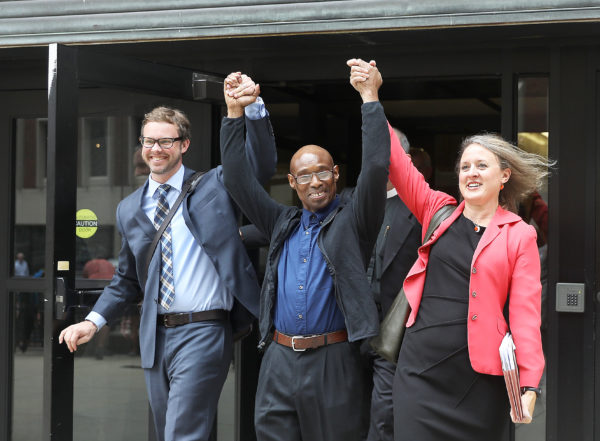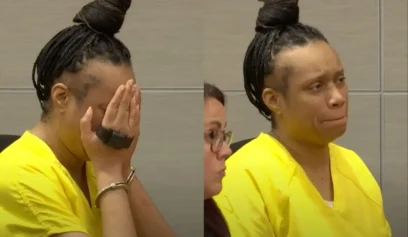The city of Boston will pay $3.1 million to a Black man who spent almost four decades in prison for a crime prosecutors agree he did not commit.
Frederick Clay, now 57, had just turned 16 years old when he was arrested and charged as an adult for murdering a cab driver in 1979.
He was convicted in 1981 and sentenced to life in prison.
“I was scared out of my mind. You can’t even buy a pack of cigarettes but you can go to a state prison for natural life,” he said on a 2018 WGBH podcast.

The historic settlement is one of the city’s largest payouts for police misconduct in years, and was reached in June but first reported last week by The Boston Globe.
Clay’s conviction was vacated in 2017 by a Suffolk Superior Court judge after investigators discovered multiple issues with the initial police investigation.
The deceased cab driver, Jeffrey S. Boyajian, was found to have been shot by a left-handed individual, and Clay is right-handed.
One witness, Richard Dwyer, told police he had seen three Black males climb into a taxi cab, but he couldn’t identify Clay until a detective placed him under hypnosis. Such evidence is widely considered as unreliable now.
“The bottom line was that anyone could look at this and say, ‘This would never ever happen in today’s world,'” Lisa Kavanaugh, who specializes in innocence cases with the state’s public defender program and helped Clay overturn his conviction, said to WGBH in 2018.
At the time, the Suffolk prosecutor’s office hadn’t vacated a conviction not involving DNA in nine years.
After being released from prison, Clay sued the state for wrongful conviction, and received $1 million — the maximum allowed by state law.
The recent $3.1 million settlement Clay will receive is not the largest payout the city has made in the last decade. Boston has spent $15 million on police misconduct claims in the last 10 years.
Shawn Drumgold received $5 million in 2014 after being wrongfully convicted of killing a 12-year-old girl and serving 15 years for the crime.
In 2009, the city paid $3.25 million to a man wrongfully convicted of raping three woman in 1980.
The city has also settled several excessive force claims through multiple five-figure and six-figure payouts in recent years.
“It’s becoming increasingly clear that juries recognize, first, that wrongful convictions happen,” said one of Clay’s attorneys, Emma Freudenberger, to WBUR last week. “Second, that wrongful convictions happen because of police misconduct — and third, that when wrongful convictions happen the damage that they do to a person’s life is just extraordinary and unparalleled.”


